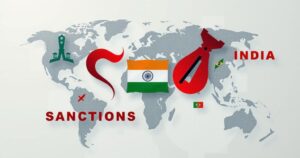Mexico, Chile, Uruguay Halt Poultry Imports from Brazil Amid Bird Flu Concerns

Mexico, Chile, and Uruguay suspend poultry imports from Brazil due to a bird flu outbreak in Rio Grande do Sul. China and the EU have enacted similar measures. Brazil, a major poultry producer, is implementing containment strategies while notifying international health organizations. Past concerns over export quality have previously caused trade disruptions.
In a significant move, Mexico, Chile, and Uruguay have suspended poultry imports from Brazil following the country’s first confirmed case of bird flu in commercial poultry. The announcement was made by authorities on Saturday, responding swiftly to the alarming health crisis. The outbreak was reported at a commercial farm in Montenegro, located in Brazil’s Rio Grande do Sul state.
Brazil’s Agriculture and Livestock ministry disclosed on Friday that both China and the European Union had already imposed similar restrictions on poultry imports from Brazil. The National Service for Agro-Alimentary Health, Safety and Quality in Mexico issued a statement declaring a temporary halt to the importation of chicken meat, live birds, fertile eggs, and other poultry products as a precautionary measure to ensure public health and safety.
Luis Rua, the secretary of international trade for Brazil’s Ministry of Agriculture, confirmed that Chile and Uruguay had also joined the suspension of poultry imports. He emphasized that these actions were undertaken to protect the health of consumers and mitigate the spread of the disease. Brazil is a key player in the global poultry market, producing approximately 14% of the world’s chicken meat.
Interestingly, Brazilian egg exports to the United States saw a massive increase of over 1,000% from January to April 2025 compared to the same timeframe in the previous year. This surge can be attributed to a shortage of eggs in the U.S. after its own bout of avian influenza. Brazilian authorities, responding to this outbreak, are focused on implementing contingency plans aimed at managing the situation while ensuring a stable supply of poultry products for its population.
The Agriculture ministry has assured that it is cooperating with relevant international organizations, including the World Organization for Animal Health, to combat this outbreak effectively. Measures taken will vary according to the severity of the disease, and previous agreements with importing countries will be respected, potentially limiting imports to specific regions rather than imposing a nationwide ban.
Historically, Brazil has encountered challenges in poultry exports due to sanitary concerns. Back in 2018, the European Union temporarily banned chicken imports from 20 Brazilian plants, citing salmonella fears, prompting Brazil to challenge this action through the World Trade Organization.
This recent bird flu outbreak has prompted swift action from several neighboring countries, illustrating the delicate balance of maintaining food safety amidst health threats. Brazil, a major player in the poultry production sector, is undertaking significant measures to contain the virus and protect its food supply chain. The international community’s response to these outbreaks will be closely monitored, as restrictions may evolve based on health assessments and trade agreements.
Original Source: apnews.com







